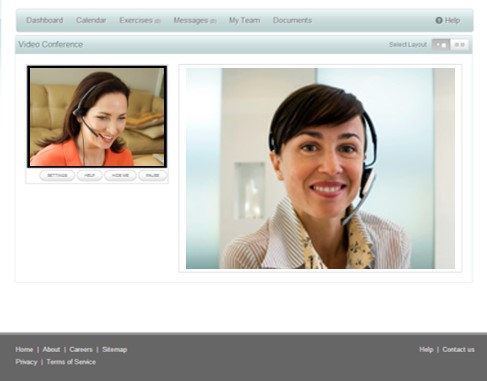 Remote behavioral intervention startup AbilTo has raised $6 million in a second round of funding led by BlueCross BlueShield Venture Partners and Sandbox Industries. Also contributing to the round was .406 Ventures, which led a $3 million round for the company last year.
Remote behavioral intervention startup AbilTo has raised $6 million in a second round of funding led by BlueCross BlueShield Venture Partners and Sandbox Industries. Also contributing to the round was .406 Ventures, which led a $3 million round for the company last year.
AbilTo is focused on identifying and remotely treating mental health comorbidities that can negatively affect recovery from medical conditions or events such as cardiac events, diabetes, or breast cancer. The company works with health plans and employers, including Aetna and Costco, to identify the individuals in an employee population that are at the highest risk for these complications and are the most likely to be helped by treatment. Then those patients are invited to an eight-week video messaging program with a therapist and health coach.
"One in four heart patients will leave the hospital with untreated depression," CEO Michael Laskoff told MobiHealthNews. "Left untreated, they will cost twice as much to care for on an annual basis. So we came up with a very simple notion and started partnering with Aetna saying, if we can identify these patients, find those people who have both the greatest need and the greatest propensity for change, engage them remotely -- which means that we can provide service to anyone, anywhere -- and then actually quantify their improvement in terms of behavioral health, medical health, and financial savings, that would seem to be pretty interesting."
Laskoff founded the company in 2008. Since then he says the company has been able to demonstrate a 70 percent reduction in depression severity and a 66 percent engagement rate -- two out of three patients who start the program finish it. In addition, 97 percent of participants say they would endorse the program to a friend. The next thing to validate is the medical cost savings, which Laskoff said the company is soon submitting for peer review.
As the investment from BCBS Venture Partners might suggest, the impetus for the raise is to scale. Laskoff said the company has met a large amount of interest from insurers. He'd also like to continue to validate the platform to be able to convince public payors like Medicare to get involved as well.
"This approach, that we're primarily bringing to a commercial population, would have a big benefit to a great portion of the Medicare population and some fairly obvious areas beyond that. We continue to look for the kinds of areas where if you can actually help people, it can generate a financial return substantial enough that the people tasked with decisions about whether to pay for something or not to pay for something will have an easy choice to make."
This could mean innovating into additional use cases (the company currently works with cardiac events, diabetes, breast cancer, postpartum depression, chronic pain, and general depression). In terms of technology expansion, Laskoff said the current technology is PC-based and he does anticipate a move to mobile -- at least for the care providers.
"Next year we're looking for ways to branch into mobile devices for those things that can be done simply and sensibly, using more edge-oriented technology, and a lot of that isn't going to be the bells and whistles of 'a consumer can do this from anywhere'," Laskoff said. "We want them to be doing it from a private and well-ordered space, so there are advantages to keeping them put. But in terms of how we engage with our large network of providers, we really look to be pushing out more to a mobile app environment."
The company is seeking to expand and improve its call center and also improve the sophistication of its reporting technology, to make it easier to provide payors with their cost savings and return on investment.
"What we're trying to do is bring science to an area that hasn't always had it," Laskoff said. "We hope to see more people basically measuring results. When we do that, we'll be doing an important part of our mission, which is to help transform behavior health. It's really valuable and we all have to work hard to make sure people understand exactly why."




















